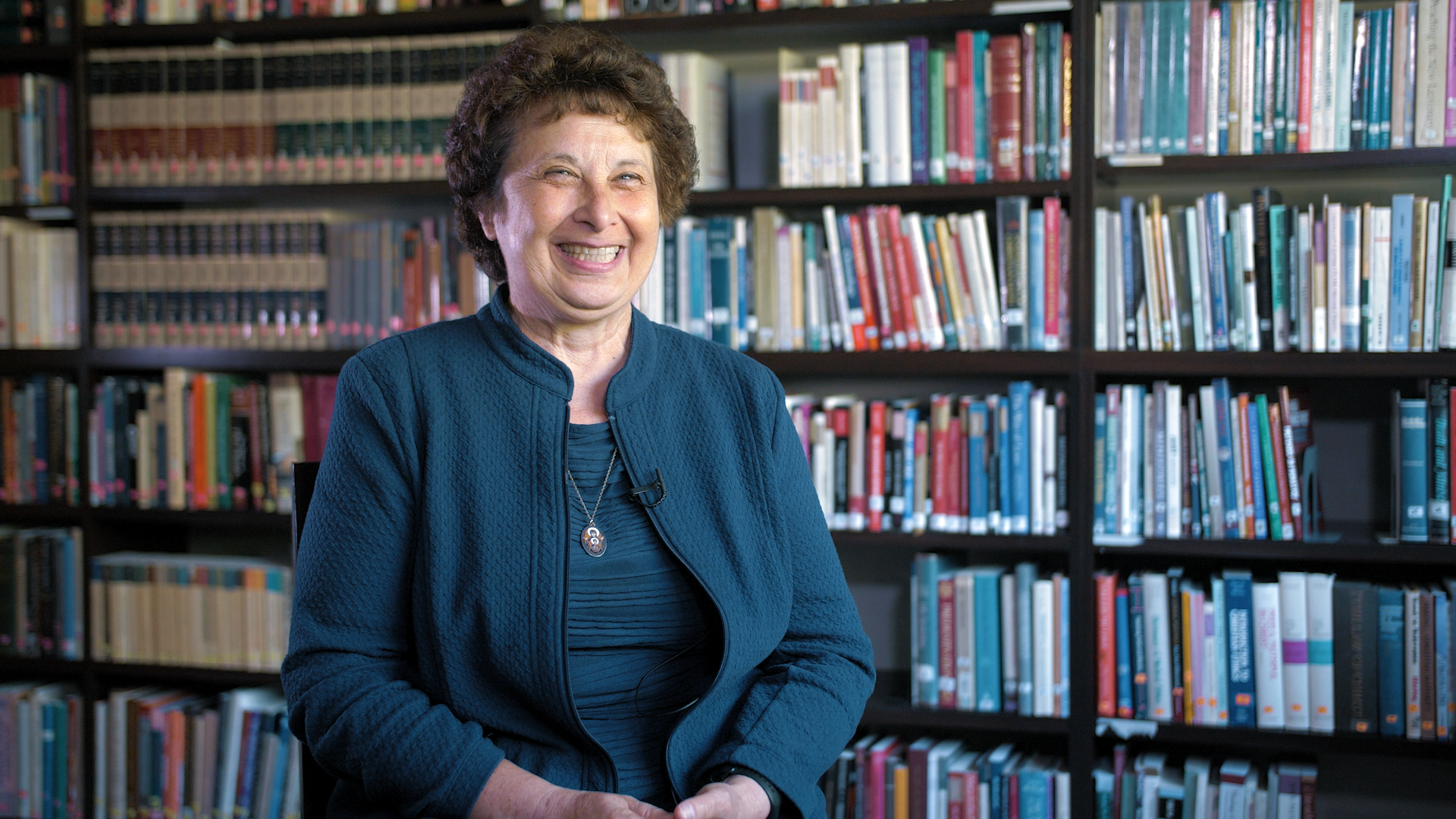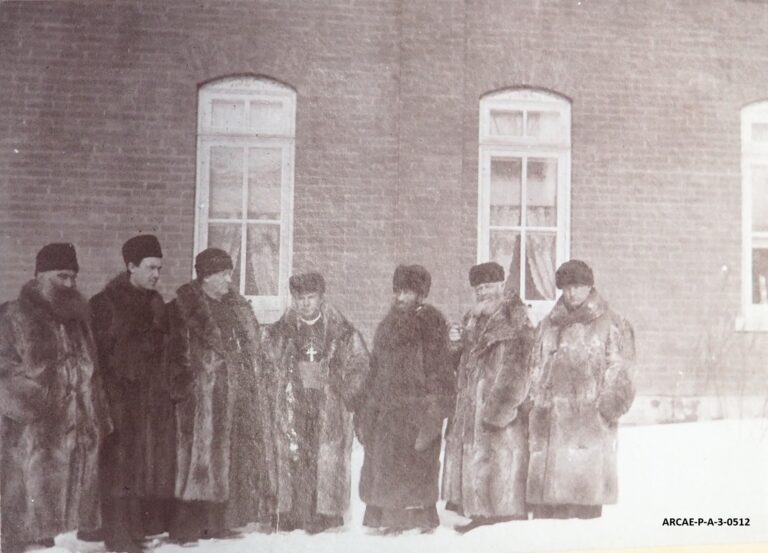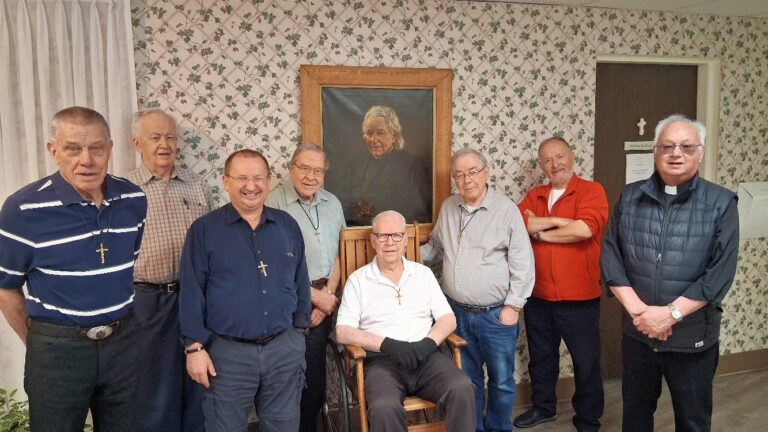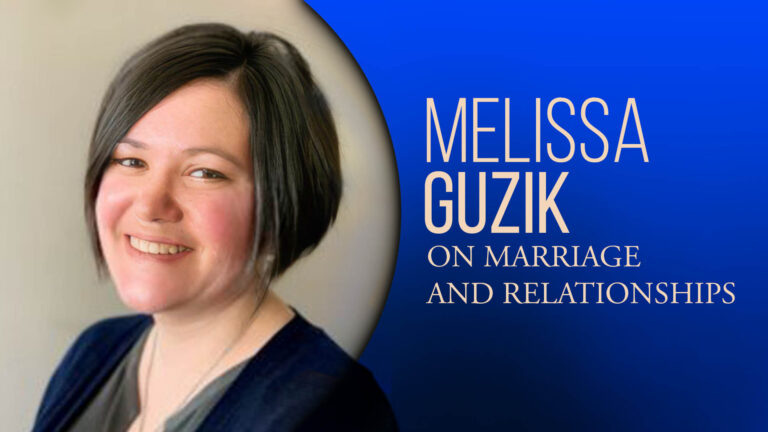Sister Zoe Bernatsky is a member of the Ukrainian Catholic Sister Servants of Mary Immaculate and a professor of theology at Newman Theological College in Edmonton, Alberta.
Sister Zoe lives in Edmonton with two other members of the Sister Servants of Mary Immaculate. She grew up in Regina, Saskatchewan and she joined religious life at age 21. Watch the video version of her story here.
When did you first think of religious life?
In Grade Four, my teachers were sisters and at the same time there was something that I really wanted to happen – I won’t say what it was because it was a pretty selfish request – but I really wanted this thing to happen. I prayed about it. And I said, “God, if this happens, I\’ll be a nun!” And then happened! So I was like, “Oh dear, what does that mean?”
But I had this sense of a loving God, and I was able to let go of that experience, so it wasn\’t a burdensome thing, where I felt pressure to become a nun.

Then, when I was in Grade 12, I had one friend who decided to enter seminary and another friend who was intending to enter a religious community. So I had this sense of, “Oh, God is still calling people to religious life.” And that\’s interesting. So that brought the idea back into my mind, because throughout high school I had lost that idea of religious life.
After high school, I decided that I needed to do something to grow in a “sense of self” and so I moved to Winnipeg and I went to school to become a nurse. That was a lovely experience. I stayed in touch with the Sisters and after becoming a nurse, I was thinking more of vocation. I thought, “I\’m a nurse, but what is God really calling me to?”
I had been going to a number of retreats led by the Sisters and then one day I got a call from a woman I knew who had entered with the Sisters Servants of Mary Immaculate. She put the novice director of the community on the phone with me and the novice director said, “Well, I hear you\’re interested in religious life and if you\’re interested, you could enter.”

So I did. The final discernment happened fairly rapidly, in a of couple months. My thought was that I should enter because it\’s hard to discern religious life from the outside. It’s something that you need to discern from within.
That personal invitation from my friend who called me made a big difference. But other than that phone call, I never had any dramatic thing happen. My calling happened in a more gradual way and once I entered, I never looked back.
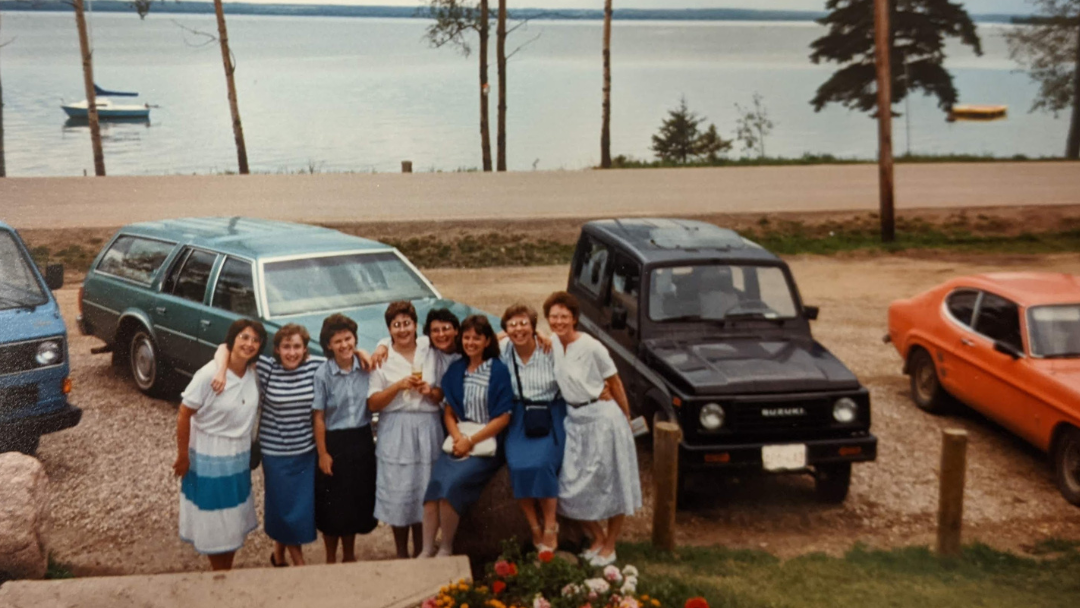
What do you mean by needing to discern religious life from “within?”
Because I knew God was a loving God, I wanted to answer His call but I felt a certain trepidation. There can be a stigma with people who enter a religious order and then leave. . . but I came to realize that it\’s part of a discernment process. Especially with religious life, we\’re quite blessed to be able to have several years before we make our final commitment.
Were you ever nervous about what God might ask you to do?
You know, I didn\’t pay that much attention to being nervous. In terms of my own call, I saw that God was working in other people\’s lives, which gave me some comfort, because I just knew that God was working in people\’s lives.
I also had this consolation because I knew that if I decided to leave the order after discerning for a while and then go get married, that would be fine. I thought “I can always get married, but I can\’t get married and then enter religious life.”

My family and friends always knew that I was a sincere seeker of my faith. I was very fortunate too because I went to Catholic schools, which I found very encouraging in my faith journey. Also the Charismatic Renewal – an informal movement in the Church that was focused on spirituality flowing from the gifts of the Holy Spirit – was starting and bubbling up and my mom went to prayer meetings, and I went with her sometimes. So I had this sense of God being very active and alive in my life and I knew that he was a loving God, who I did not need to fear.
What did your family think of you entering religious life?
Well, I knew my mom would be happy, just because she was very involved in the church.
My dad – who has since passed away – was Ukrainian Orthodox and so he used to come to church with us, but he was not as engaged. I had a sense that he might not understand this as well as my mom.
When I told my dad, he was very supportive. I think it was a little bit painful for him because he couldn\’t understand it in the same way that my mom could. So that was hard. But the Sisters in my community were very gracious to him. And he really had that sense that I was joining a community that\’s loving, and has high values.

Did you ever consider marriage?
I mean, I entered fairly young, at 21 years old. I dated, but I wasn\’t in a rush to get married and I wasn\’t in a relationship where I had ever seriously considered marriage. But marriage was still the norm for the people around me.
Did you ever have lingering thoughts of marriage or sadness that you wouldn’t have biological children?
Probably in my 20s, when other friends were getting married and having kids, it probably crossed my mind for sure. And yet, I was certainly aware that I would have other blessings. And I could still be with my friends and my siblings who had children.
The sense of having a partner to share life with, that\’s something that we give up, definitely. But all the way along, I was quite aware of the blessings of religious life.

I knew I would have opportunities in my life that I wouldn\’t have if I was married. So I didn’t linger with thoughts of what I would have to give up.
In the Ignatian principles of discernment it says to look where God is, and not where God isn\’t. I just felt like if I discerned this vocation of religious life well, that God would be with me in a way that was sufficient, that I would have all I need. Certainly, there is a sense of giving something up, but entering religious life was very, very beautiful.
Did you ever consider any other religious orders?
You know, it was pretty straightforward. Because I knew our Sisters that worked in our parish, I had a good relationship with them. I just had the sense that the Sisters were kind and good. And because of the way that I was taught about my faith, I really knew that God was a very loving God. I knew that God wanted and wants to be involved in my life in a personal way . . . and that becoming a Sister was part of that.

What is an example of a blessing or an opportunity that religious life has offered you?
So as Sisters, we are a group of women who are all dedicated to deepening our spiritual life. The whole structure of our life is built on deepening our spiritual life. Whereas in marriage, you need to be working on the relationship with your spouse, and your children and all of that. And there\’s something beautiful and sanctifying and enriching about that.
As a part of our community constitutions, we make an annual retreat, we have a spiritual director, we pray our morning and evening prayer. So all of that is structured into our lives. Prayer, spiritual reading, the Mass; they are all part of our regular day.
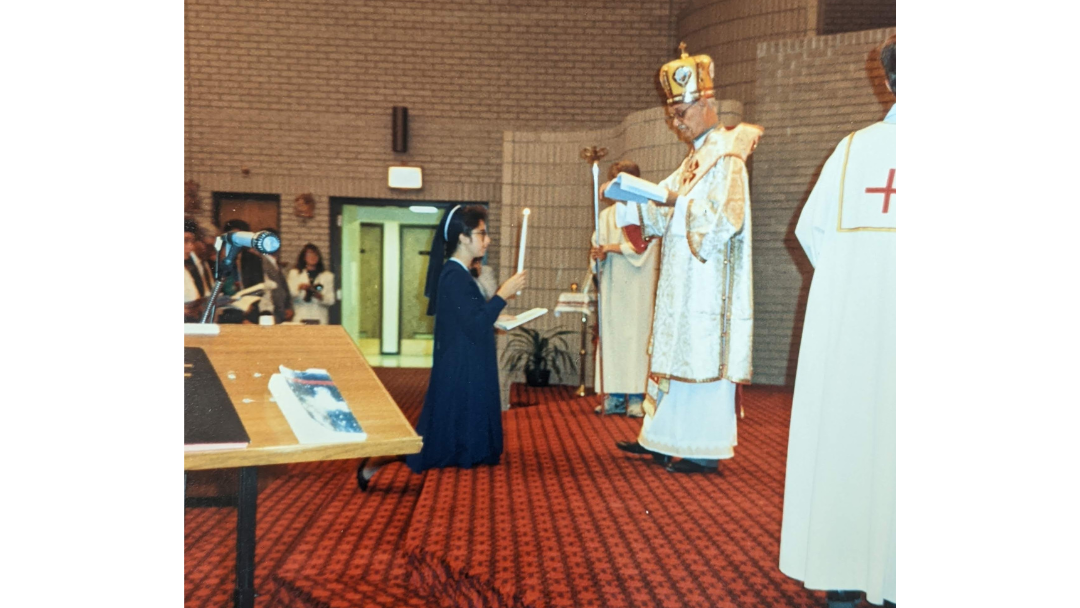
Prayer and deepening my spiritual life is my priority, in a certain sense, whereas someone in a marriage has to make their family a priority.
To be with a group of women who have a common desire to grow in that sense of spiritual life and union with Christ is very wonderful. My life is so rich and so at some point you stop looking behind and thinking of what you left behind, because you see all that you have. As a Sister, I’ve had many wonderful opportunities to study, to live in different places, and to be part of a community that has a very rich foundation.
As a sister, you do not wear a traditional religious habit. How did you discern whether to wear a habit, or not?
My community has a habit, but we also have options with that.
Our orders in Ukraine and Poland are countries that were under Communist rule and for a long time they could not practise their faith or live out their religious life publicly, so now they are really attached to the habit and wear it all the time.
When I entered, I did consider it. I talked to my spiritual director and novice directors about it. But I found that it was more coming from a place of ego, not a sense that God was calling me to that. Wearing a habit really needs to come from a call from God.
There is still a way that I dress simply. The Sister Servants are a Marian community so blue is kind of our colour, which is our formal habit. But in general I wear black and simple. So that\’s my parameters!
Sister Zoe celebrating a birthday with fellow community members in Mundare, AB.Having said that, sometimes I think the way things are today, I want to go out and be controversial, and wear a habit. But I know that that\’s not something that God\’s calling me to and my call is to be authentic, to be discerning. As an order, we do have a habit which we wear for church, for more formal events.
Most of my sisters in our community do not wear habits. Except, one of the Sisters I live with will put on her veil to go to church, which is interesting, because a friend of mine that I studied with, who\’s a Benedictine nun in Spain, said that that is how they use their habits. Their habits are garb specifically for prayer. So those Sisters wear their civilian clothes all day and then they put on their habits when they go to pray.
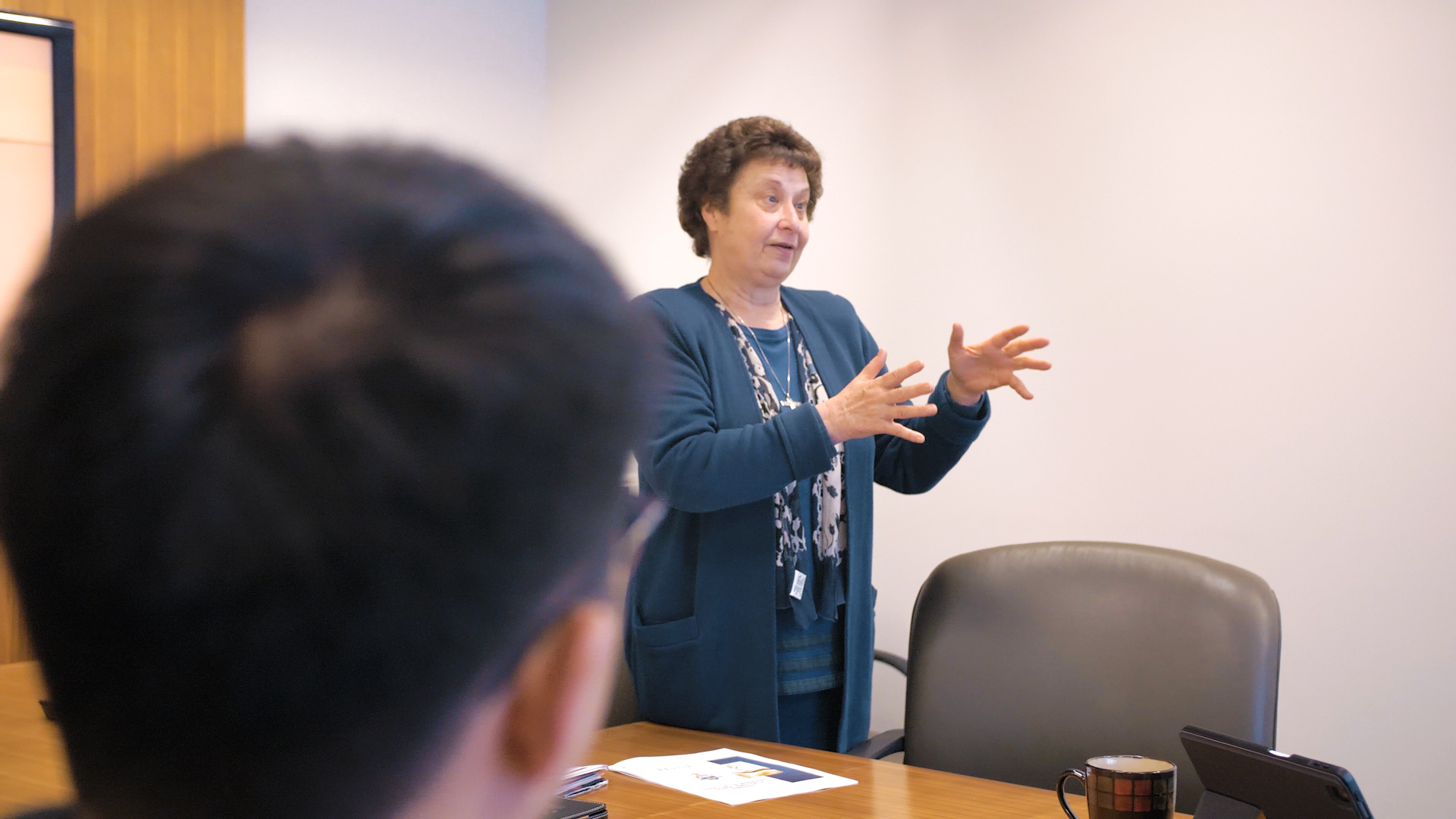
You have a PhD in bioethics and teach theology. How has your work in academia informed your religious vocation and vice-versa?
Yes, an interesting question.
I studied at a Jesuit university. And so one of the things that kept me there was the spirituality, the great spiritual directors, the prayer groups, the retreat days. So to me, that was my foundation.
I find it so enriching to understand why the Church teaches what it teaches, the explanations for why we do things as we do now, and the richness of treasure, throughout the last 2,000 years of Christian tradition.
I find that it is so awesome, that God has entrusted us, entrusted the Church, with the work of educating people for ministry. I take that very seriously as a professor. I need to keep praying and reading and learning so I can offer these riches to other people. So it\’s been wonderful. You know, my job is to read more and to prepare these classes. I feel so blessed!
How did you decide to study for a PhD?
Sometimes, it feels like I just fall into some of these things. I was getting close to 25 years as a religious sister and I had been in my previous job for 10 years. I asked if I could take some time off to study and because I had been working in health care, I wanted to do more in the area of bioethics.
I started studying and then as time went on, I thought I might be asked to attend to other things in our community, but then just continued studying. My community leadership affirmed that it was a good thing that I was doing, and so I continued into post-graduate work.
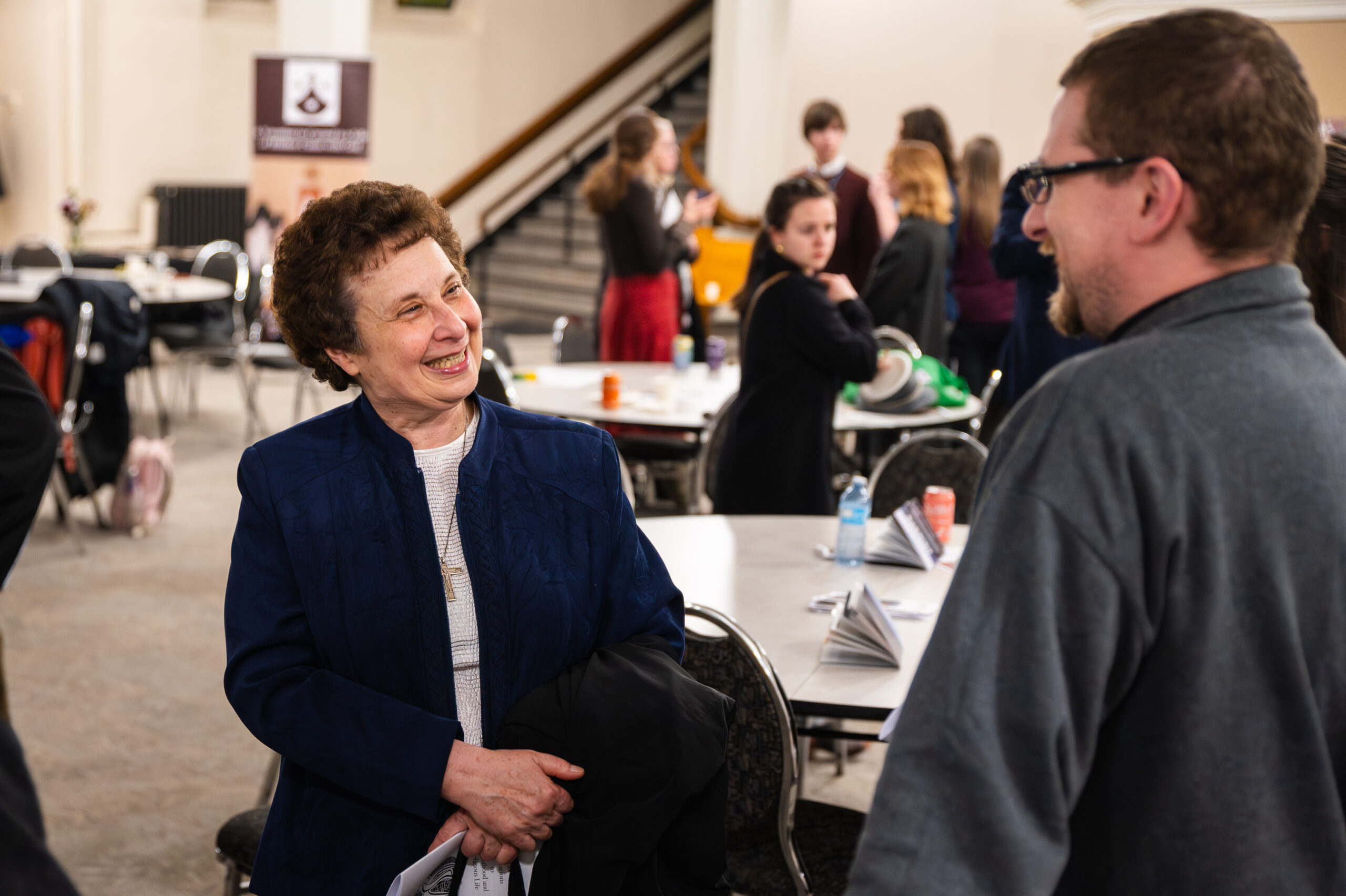
After your final vows, what was a challenge that you faced?
I was a nurse already when I entered and I thought, “OK, I was a nurse, but now that I am a nun, I should be doing something more directly evangelical.” But then after a couple years of doing religious education as a nun, I was asked to go back into nursing!
I was actually surprised how going back into health care, I approached it with a different vision, a sense of mission. It\’s interesting to just to stay open because what I may think is my best mission, may not be what God has in mind. Going back to healthcare was a bit of a surprise to me.
What is one aspect of community life that brings you joy?
Well, we have a little chapel in our house and when we join together, especially for evening prayer, that is beautiful. We spend time offering intentions, for people from our day, from world events. These times of intercessory prayer together are quite wonderful.
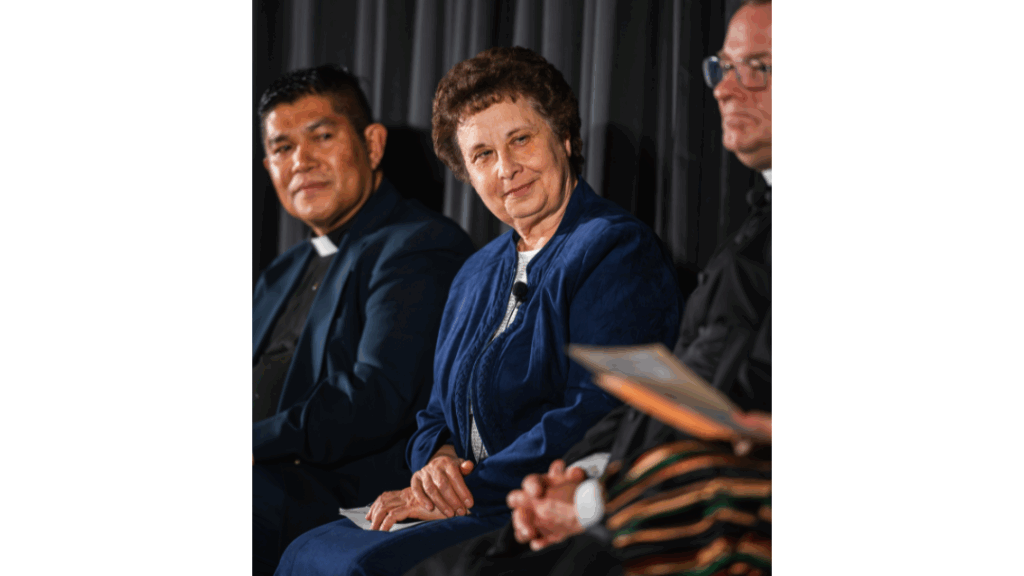
What counsel would you offer to a woman who is drawn to religious life, but she is fearful?
Two things for sure: If it\’s possible to have a good spiritual director, like someone in religious life, that is really helpful. And secondly, have courage! Because in order to really discern, you need to enter in. You can\’t discern from the outside. So just plunge in.
I think we have a better sense now that when someone enters a religious community or a seminary, they come to discern. I think in the past there was a bit of a stigma if someone entered and then they left. But now we talk about it in terms of “they discerned out.”
So come and join the life and pray and be engaged with a community. In so doing, it gives you a richer foundation in which to discern. So like Jesus said, “Come and See!”
God will lead and God is good. God will be there.
Visit the website for the Ukrainian Sister Servants of Mary Immaculate.
(This interview has been edited for clarity and brevity)
Jenny Connelly – Archdiocese of Edmonton
Be Not Afraid is a series of videos and companion articles that tell the stories of 12 religious sisters and priests who serve within the Archdiocese of Edmonton.
New episodes are released every Thursday. Subscribe to our YouTube channel to watch new episodes each week.

